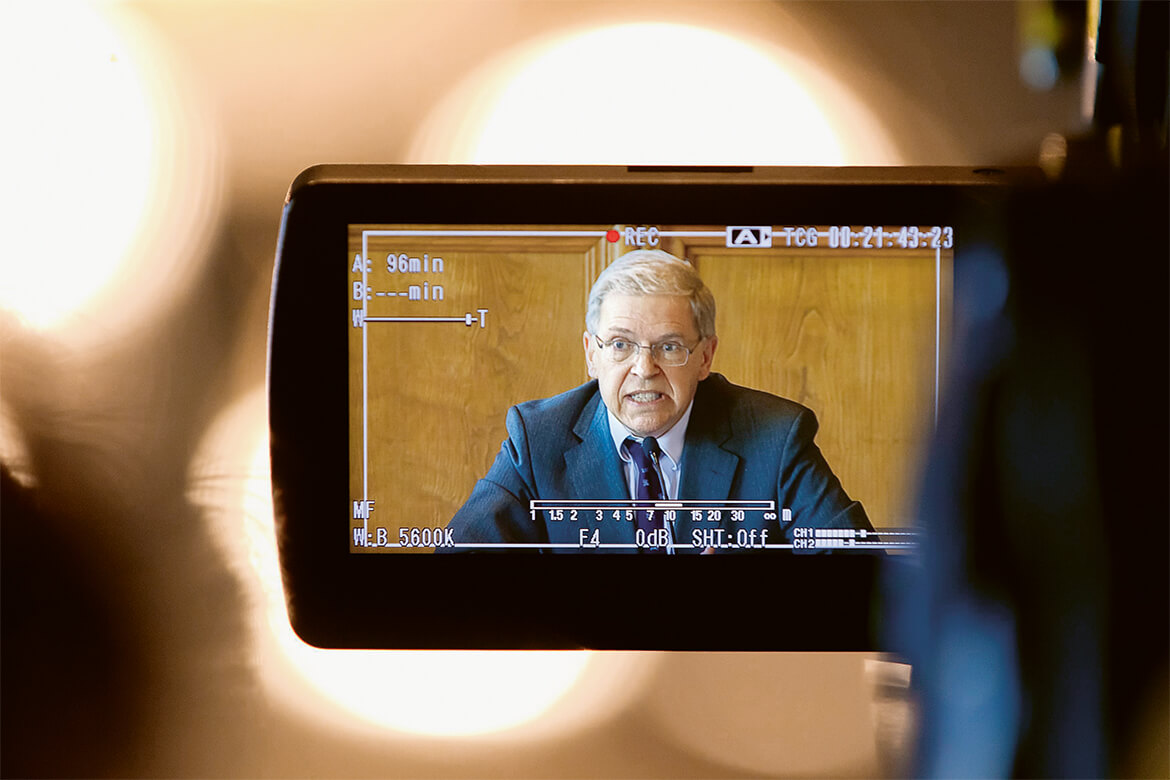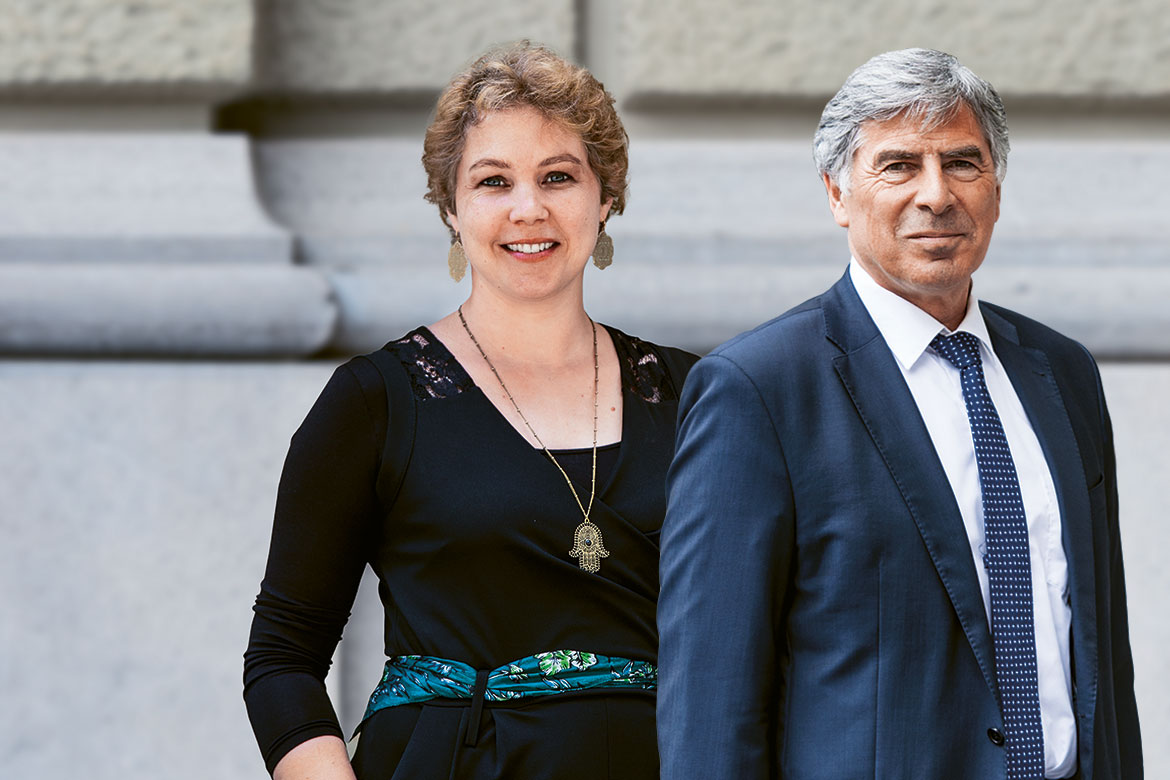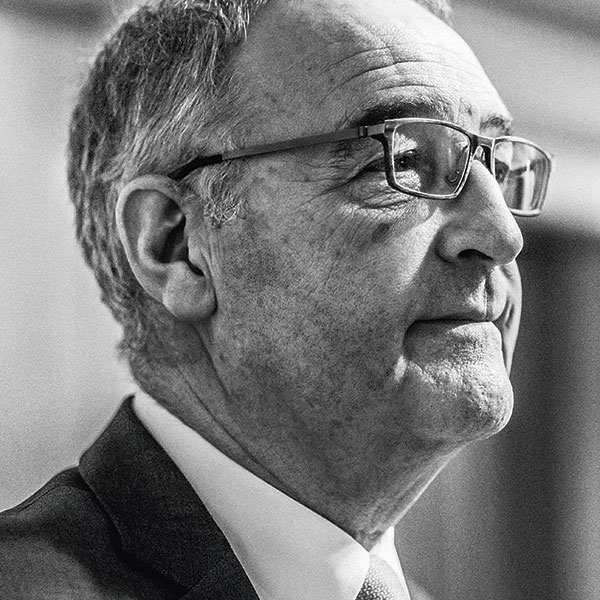Universities: getting crisis communication right
Crises hit the higher education sector too, but universities are often caught off guard. According to Michael Furger, this situation is caused mainly by their decentralised structures.

Andreas Fischer, Rector of the University of Zurich, makes a statement in September 2012 about the immediate dismissal of Christoph Mörgeli as the curator of the University’s Medical History Museum. | Image: Keystone/Alessandro Della Bella
The University of St. Gallen has certainly experienced quieter years than 2018. First an economics professor made the headlines because of his job as Chairman of the Board at the Raiffeisen Bank. Then the University had to deal with a case of over-spending on expenses in one of its institutes. And finally, the Rector himself came under pressure for taking on outside employment and for his high salary.
Sulky, not smart
Three crises, all of them in the public eye. And they’re not the only negative headlines that Swiss universities have had to deal with in recent years. For example, there was the commotion about examination papers being made public at assorted universities (such as in Bern in 2017), then there was the harassment case at ETH Zurich in 2017, the scandal about a secret UBS sponsorship contract at the University of Zurich in 2013, and then what was probably the biggest crisis to hit a Swiss university in recent times: the case of the controversial medical historian Christoph Mörgeli that convulsed the University of Zurich in 2012.
In many cases, the public reaction by the universities in question was similar. They came across as helpless, occasionally confused, at times even offended. ETH Zurich, for example, tried with all its might to ensure that its harassment case would remain unnoticed by the public. When it nevertheless came out, its reaction was uncommunicative, even sulky. And a survey carried out in Germany has similarly shown that university communication departments are great at bringing out glossy magazines and publishing research results, but they’re not as well-prepared when a crisis occurs.
In 2017 researchers from the Technical University of Ilmenau did a survey of the communication heads of 67 German universities. Four out of five admitted to having experienced at least one crisis. The most frequent were negative press reports or cases of misconduct by staff or students. Nevertheless, it was rare for them to engage in relevant measures such as offering media training, developing crisis scenarios, or drawing up guidelines for dealing with social media. There are no similar statistics for Switzerland, but their university communication policies are similar to those in Germany, says Birte Fähnrich, a research associate at the Berlin-Brandenburg Academy of Sciences and Humanities, and co-editor of the book ‘Forschungsfeld Hochschulkommunikation’ (‘Research field: university communication’).
Discussion, not action
Fähnrich investigated the plagiarism case of the former German education minister Anette Schavan in 2012. This was not just a crisis for Schavan, who lost her doctorate and her post as minister, but also for the University of Düsseldorf, which reacted badly. In its public communications, says Fähnrich, the university was keen to emphasise how it was examining the case, and how it was revoking the doctorate. “Their only concern was to take the correct formal and legal approach”. So they missed an opportunity to exercise their duty as a “scholarly communicator”, potentially explaining the practices and pitfalls of conducting research. If they had done so, they might have managed to restore the reputation of academia.
Crises are construed through social and communicative means. The way a university or a scholarly community communicates during a crisis is decisive for how they are perceived by the public, and how much reputational damage is done. So why do even excellent universities fail to meet these challenges? According to Rolf Probala, one reason is their decentralised structure. From 2000 to 2006 he was the head of communication at ETH Zurich, and today works as a freelance communication consultant. When you’re dealing with academic issues that can bear long debate, it makes sense for a university to see itself as a ‘republic of scholars’ that administers itself and affords its professors a high degree of autonomy. “But in crisis situations, when they need to act quickly and decisively, this leadership model becomes at best a burden, at worst a fiasco”.
Probala sees a second reason in the size and complexity of universities. They have long, internal paths of communication and represent divergent interests. So when a crisis occurs, it can often take too long for the top boss to learn about it. To be sure, Probala maintains that the same applies to large private companies and to state institutions. “But the structure of universities, with their rather weak overall leadership, simply makes the problem worse”. Trying to achieve good communication is further complicated because crises at universities can be highly diverse, and at times have nothing at all to do with scholarship or science. So when he was head of communications at ETH Zurich, Probala developed a ‘crisis concept’ that encompassed everything from coping with scientific forgeries and possible fraud or criminal behaviour by ETH staff, down to terror acts, hacker attacks and even laboratory explosions that might release toxic substances.
The USA offers examples enough to prove that such scenarios aren’t unthinkable. One of the biggest crises at an American university took place at Virginia Polytechnic Institute and State University in 2007, when a mentally ill student went on a campus shooting spree for two-and-a-half hours, killing 32 lecturers and students. Virginia Tech was later subjected to intense criticism because it had been reticent about warning students after the first shots were fired, when it should have been concerned with simply saving lives instead.
Crises are the norm
Universities have to change their awareness of what crises are about. “Every large-scale organisation will suffer a crisis at some point”, says Peter Stücheli-Herlach, Professor of Organisational Communication and Public Spheres at the Zurich University of Applied Sciences (ZHAW). Universities are especially susceptible because they are regularly exposed and often already controversial. The financial resources that they need are constantly being questioned, as is science itself. Ethical debate is ongoing, and there are social tensions, says Stücheli-Herlach. “In this sense, it’s actually astonishing that more crises don’t occur”.
The increasingly intense discussions taking place in society mean that universities are going to have tough times ahead. They will have to learn that crises are the new normal, says Stücheli-Herlach. In other words: “Scientists have to say goodbye to the notion that they know everything better than everyone else”. It will also be necessary to create an infrastructure that can constantly watch out for possible trouble spots and societal controversy. “Every debate could at some point turn against your own university”. Stücheli-Herlach also suggests setting up a metaphorical ‘observatory’ and establishing a culture of open dialogue – also with critics of the universities. The universities will have to become more critical in their own approach to media, and turn away from ‘science propaganda’. “Universities are going to have to burst their own bubble”.
Stücheli-Herlach believes that if such a strategy had been adopted, it might have prevented the Mörgeli case from escalating the way it did. “It was predictable that the situation at hand would escalate. They could have opened up a discussion with Christoph Mörgeli far sooner than they did”. Stücheli-Herlach also believes it’s a mistake to think that a university always has to speak with a single voice. “The educated general public knows that different viewpoints are going to be found in any large organisation”.
Crises, persistent journalists and critical questions – in future, universities should regard these not as symptoms of an exceptional situation, but as the new normal. This is what Stücheli-Herlach believes. If they remain in constant contact with the media and their critics, and if they keep their eye on societal controversies, then they’ll be able to communicate more effectively, even in crisis situations.




